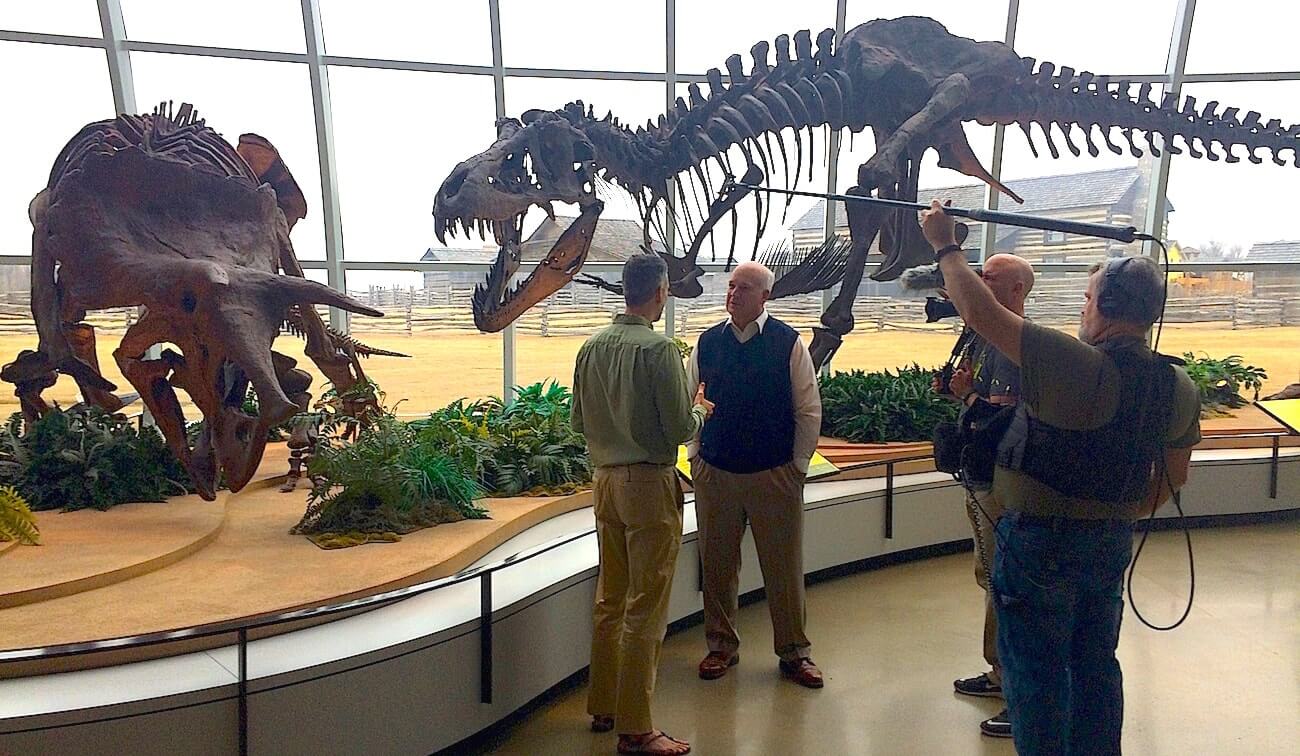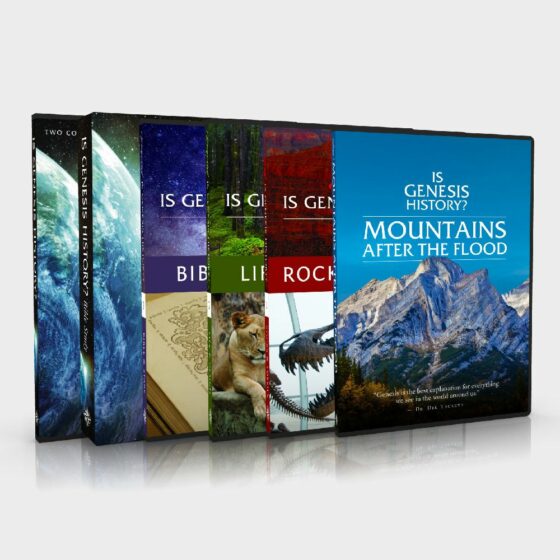The idea for a documentary on Genesis came from a conversation I had with my then ten-year-old daughter.
She was watching a creation-evolution debate and was bothered by a number of things the evolutionist said. Her concern was that the events he described — a billions-of-years old earth, the direct relationship of men and animals, the impossibility of a global flood — were completely different from the events described in Genesis.
I knew how she felt. As a 15-year-old, I had been bothered by the same things. I recall reading books by Richard Leakey alongside books by Henry Morris. After weighing both sides of the question, I came away convinced that Genesis was an accurate book of history.
But that was over 30 years ago. I wondered if perhaps a documentary might be useful not only to my daughter, but to others interested in this topic. I started reading books and articles on creation and evolution. I tracked down a few scientists to ask them questions about it. Eventually, I found myself in front of them with a camera.
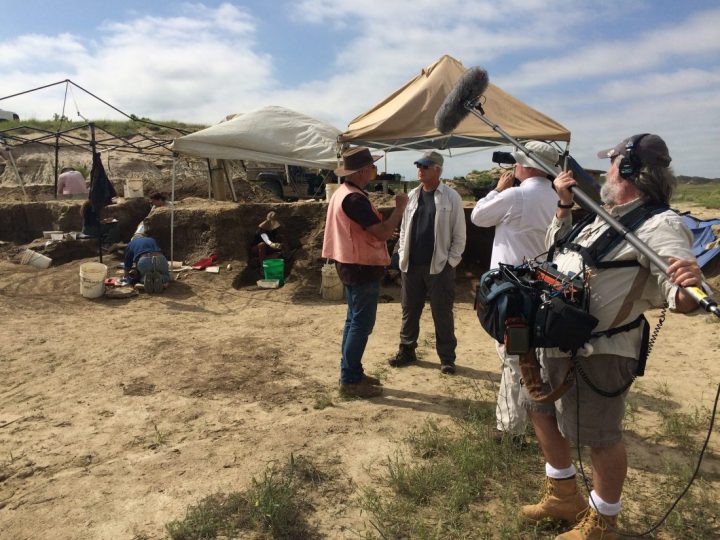
What I learned over the next few years changed my view of science, history, and the Bible. Here are three of the more important things I discovered:
1. Time & History are the Bedrock of Biblical Theology
I cut my theological teeth on the writings of Geerhardus Vos. What he taught me was that God formed real people and events in time to be the foundation of every aspect of Christian theology. God then recorded that history in the Bible. Starting with Creation and the Flood and going up to the Apostles, God progressively revealed Himself in the history of the world.
As Vos explains in Biblical Theology, “The process of revelation is not only concomitant with history, but it becomes incarnate in history. The facts of history themselves acquire a revealing significance.” Like acorns that grow into a forest of trees, the facts of history are necessarily connected to the theology that grows out of them.
We sometimes get caught up in our dedication to systematics and forget that every author of the New Testament builds his theology on the historical actions of God in time. Not ‘special, holy’ time, but normal, mundane time: the same days, weeks, months, and years we all experience.
All of Christian theology rests on its view of time.
The authors of the Bible make this abundantly clear. The creation happened over six days; the Flood started in Noah’s six hundredth year; Abraham was seventy-five when God called him; Moses spent 40 years in the desert; Isaiah saw the Lord in the year King Uzziah died; Jesus was in the tomb for three days.
All of Christian theology rests on its view of time.
That’s why a comment made by an old-earth creationist friend intrigued me. He said he began to understand Genesis 1 when he realized “it had nothing to do with time.” Curiously, he was referring to a text that uses the words ‘day,’ ‘evening’, and ‘morning’ multiple times in sequence; God refers to the same text when He is quoted in Exodus 20:11 providing us the pattern for our normal week of work and rest.
To say Genesis 1 has nothing to do with time is a curious line of thought. Yet that is what some Christians are doing today. They employ interpretive models in which events recorded in Scripture are cut free from actual history. The words may still be there, but any connection to normal, mundane time is gone.
As I began to study recent interpretations of Genesis by respected evangelical scholars, I noticed they all had one thing in common: they were de-historicizing and re-interpreting key sections of Genesis in order to make room for a completely different view of time. Clearly something very powerful and persuasive was influencing them.
What was that view of time that was seeking to replace the Biblical view?
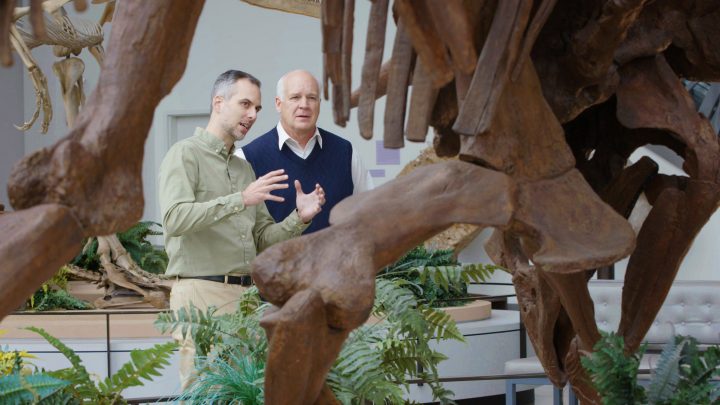
2. The Primary Conflict is between Deep Time versus Biblical Time
In 1830, geologist Charles Lyell wrote a letter to a friend encouraging him to help “free science from Moses.” At the time, there was a debate going on in England as to the source of the rock layers in the world. Did they form quickly as a result of flood waters, or over long periods of time as a result of slow, uniform processes?
Lyell and other thinkers rightly understood that Christian theology is rooted in time. If Enlightenment naturalism was to replace it, they had to construct an alternate timescale in which their new natural history could flourish.
That timescale was ‘deep time.’
This was an intentional move by brilliant men who had one thing in common: they rejected the possibility of divine revelation as a way to know what actually happened in time. Savants such as Comte de Buffon, Pierre LaPlace, and Jean-Baptist Lamarck were basically atheists; Georges Cuvier, James Hutton, and Charles Lyell were deists. Although some of them talked about “design,” they were not referring to the creative actions of the Trinitarian God at a certain point in time as recorded in Scripture.
This is what has been missed by many in the origins debate: it is not philosophical ideas or scientific data that are ultimate, but the historical framework. Time influences everything else.
The concept of deep time was also supported by Anglican broad churchmen like Adam Sedgwick, William Conybeare, and William Buckland who had adopted liberal interpretations of Genesis. From inside the church, they argued Genesis was not actual history. Together with the other savants, they established a new view of time under the auspices of the scientific thought of their day.
It was the age of rationalism, so scientific ideas self-consciously came before observation.
In Time’s Arrow, Time’s Cycle, evolutionist Stephen J. Gould exposes the myth that men like Hutton and Lyell went to the data and then came back with deep time; rather, they started with the concept of long ages and looked for data that would fit their theories. We should therefore not be surprised that many of their scientific interpretations of the rocks have now been discarded—yet their view of time and history has remained.
After all, their view was designed to displace the biblical view of history. This is what has been missed by many in the origins debate: it is not philosophical ideas or scientific data that are ultimate, but the historical framework. Time influences everything else.
But isn’t deep time proven beyond a doubt?
No, it cannot be proven because it is an historical assumption—a paradigm—that precedes the interpretation of data. No one can do an experiment on the past; one can only collect a limited number of observations then attempt to interpret them according to a paradigm.
Paradigms are found throughout every discipline of science. They are a necessary part of the scientific endeavor. When viewed as a whole, they form an interconnected network of assumptions pervading every field of science. Some are extremely particular to one field; others, like views of time, are essential to all the disciplines.
Although paradigms have been demonstrated by historians such as Thomas Kuhn to be enormously powerful, many scientists do not like to think they are being influenced by concepts that cannot be proven and that change with time. They realize that it calls into question their authority to speak with absolute certainty about the natural world.
Yet it is the history of science itself that demonstrates the transience of scientists’ ideas about the world.
In just the last 250 years of geology, the catastrophism of Cuvier gave way to the uniformitarianism of Hutton and Lyell, which in turn gave way to the neo-catastrophism of Derek Ager et al. Geologists again look at rock layers and see evidence of major catastrophes. Yet previous generations would have scoffed at the idea of significant catastrophes used to explain layers — just like they scoffed at the idea that the earth had moving plates when, in 1859, it was suggested by a creationist, and again in the 1930’s, it was suggested by an astronomer.
In fact, most of us who took Physical Science in middle school are unaware that the famous idea of plate tectonics was an idea rejected by mainstream geologists for decades until the late 1950’s. Older geologists will talk about being in graduate school and remembering the paradigm shift from one view of geology to its exact opposite, all within a few years.
One notices the same thing in every area of science: astronomy, biology, genetics, etc. This is why philosopher of science Thomas Kuhn points out that “a quite different concept of science…can emerge from the historical record of the research activity itself.”*
In fact, when one digs into the history of science, all one sees is change – except in the commitment to deep time.
This is because deep time is the bedrock of the naturalistic view of the world. One need only glance at the events currently considered to be essential to the conventional view to realize it is a completely different timescale and history than the one presented in Genesis:
The conventional view says the universe formed slowly over 13.8 billion years; there was a galactic cooling event 4.5 billion years ago and the earth formed from the clumping together of planetesimals; after another billion years, single-cell creatures appeared, then complex creatures a few billion years later; death and extinction reigned for over 500 million years as a variety of living creatures appeared and disappeared all before the first humans showed up on the earth.
This puts Christians who hold to an old earth timescale in a curious situation. Because they have de-historicized six-day creation and re-interpreted the text referring to a global flood, they must turn to the conventional paradigm to explain what happened during 99.99% of the universe’s history. And 99.99% is essentially all of it.
Yet the primary architects of the conventional history built it to replace the record in Genesis. They do not think the facts of history have any revealing significance. They do not see any evidence of God speaking in history. There is no place for biblical theology. It is just 13.8 billion years of silence.
When old earth creationists therefore say God must be somewhere in those events that occurred over millions and billions of years, atheists and deists can simply ask, “Where? He certainly hasn’t revealed his actions during that time in any knowable way, and that’s the foundation of your biblical theology. You have rejected the only witness to history you have.”
That is why the first chapters of Genesis are so important. They form the foundation of how we know God in time; they are the bedrock of all our theology. They are absolutely necessary to understand what has happened in the past.
As Paul Nelson explains: “We have a witness to those events, and that witness is telling us this is what happened, and we have to take that into consideration when we evaluate the data.” Whether it is zoology, genetics, sedimentology, or cosmology, God’s witness to history must come first in guiding us toward an understanding of natural history.
This is what the scientists we interviewed in the film are doing. They are taking the historical witness recorded in Genesis and examining the natural world in light of it.
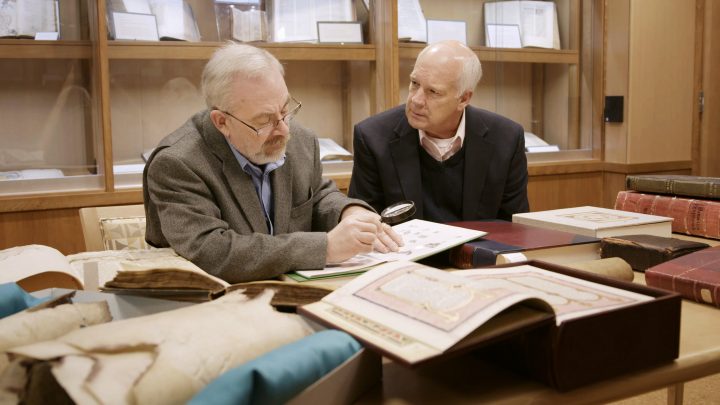
3. The Historical Record in Genesis Provides a Better Explanation of the World Around Us
After spending three years digging into the work done by these scientists, it is impressive to see how much it explains.
When you look at the complex interrelationships between the countless biological, geological, and physical systems in the world, all of which must simultaneously be in place to work, the creation of everything in six, literal days makes perfect sense.
When you look at the enormous layers of rock that stretch across huge sections of the continent, the lack of widespread, deep erosion between layers, the sudden appearance of complex fossils in the lowest layers, the repeating pattern of fossil footprints below hard parts, and the discovery of soft tissue in dinosaur bones, a global flood makes perfect sense.
When you look at the order in the physical universe, the fascinating design of animal kinds, the sudden emergence of language, the unique nature of humans, and the tendency of fallen man to think he can understand the world without needing to rely on revelation, the record in Genesis makes perfect sense.
It is when one sees all the evidence together that the powerful witness of Genesis grows in strength.
And yet many Christians are either unaware of the magnitude of the data, or have only been taught to view the world through the conventional paradigm of an old earth.
I think that is why many evangelical exegetes have sought out new interpretational approaches to address Genesis 1. The pressure of the conventional view is great, and in their hope of maintaining the historicity of other parts of the Bible, they feel compelled to de-historicize and re-interpret the narrative sections recorded in the first chapters of Genesis.
But that is simply unnecessary. When one adopts the historical paradigm provided by Genesis, it provides a much firmer foundation for correlating what we read in the Bible with what we understand about the world through science.
Ultimately, that is why we made a documentary. My hope is that it will provide a helpful perspective for both 10-year-olds and Biblical scholars.
*Thomas Kuhn, The Structure of Scientific Revolutions, 4th Ed.
-
Creation Bundle
Original price was: $154.78.$77.39Current price is: $77.39. -
Sale!
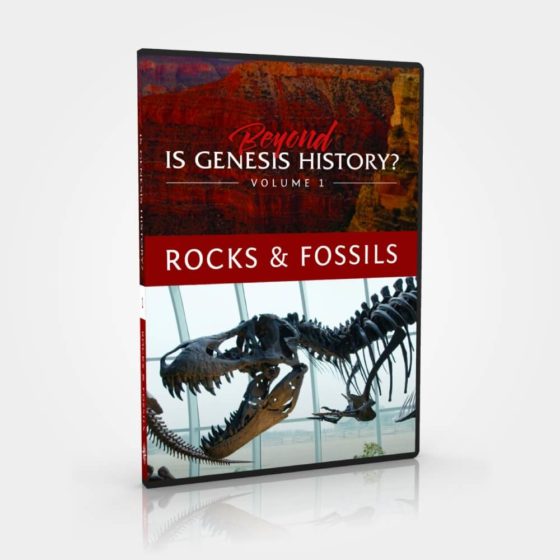 Select options
This product has multiple variants. The options may be chosen on the product page
Select options
This product has multiple variants. The options may be chosen on the product page
Beyond Is Genesis History? Vol 1 : Rocks & Fossils
$23.95
